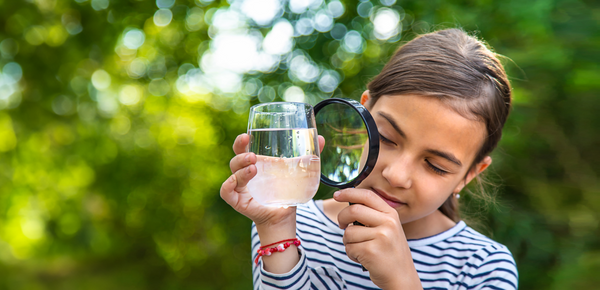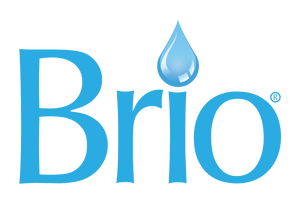It’s essential to your survival. It’s key to your health. You drink it every day. So why compromise on its taste? When it comes to hydration, how your water tastes takes center stage, and the quality of the taste test hinges on filtration.

This isn’t just about eliminating impurities; it’s about transforming the ordinary sip into an extraordinary experience. After all, you’re more likely to drink more water and optimize your health if you love how your water tastes.
Join us on a journey through the world of water filtration, where the spotlight isn’t just on purification but on the enhancement of taste, smell and your overall personal drinking experience.
What makes water taste bad?
The taste of your water is strongly linked to how it smells. No surprises there – the combination of taste and odor is well established. But tap water often carries a less-than-pleasant symphony of tastes: chlorine’s sharp crescendo, metallic undertones, and earthy odors playing in the background. Let’s have a look at what makes tap water taste bad.
Chlorine
One of the most common complaints about tap water taste and odor involves chlorine, which is an essential disinfectant used around the world. Chlorine might have an offensive smell, especially when the hot tap runs, but it is a major weapon against pathogens spreading in our water supplies. Areas with very old and corroded pipes might add more chlorine to counter the risk of microbial contamination entering the system.
Hard water
Rich in calcium and magnesium carbonates, hard water can stop a soapy lather from forming, impart an unusual flavor in hot drinks and cause a build-up of scale minerals in hot water appliances and water pipes.

Tank water
Water supplied by rainwater tanks can provide odd tastes and odors. Dead animals and accumulated vegetation from overhanging trees, for example, can be unwelcome tank water quality hazards.
Sulfur
A sulfur taste and odor can also be present in some water supplies. This is caused by hydrogen sulfide (that rotten egg smell). Similar to chlorine, its odor might be detected when running a hot shower. The source of sulfur can be from the water supply geology or from the decay of organic matter.
How to make tap water taste better
The secret to ensuring your water tastes better – and is safer, healthier, sustainable and cost-effective – is water filtration. But it’s not a one-size-fits-all scenario. If you’re wondering how to make water taste better, there are several different filtration methods to consider, depending on your unique requirements. Let’s have a look at the maestros in the hydration symphony.
Activated carbon filters
These filters, composed of porous carbon made from renewable coconut shells, absorb impurities, paving the way for a cleaner taste.
They trap compounds that give water an unpleasant taste and odor, such as chlorine and hydrogen sulfide. They also filter out iron rust and small particulates that can affect the color or appearance of water, increasing your H2O’s clarity.
Ideal for:
Ultrafiltration
This method operates on a molecular level, sieving out larger particles and microorganisms. After prefiltration by a sediment and pre-carbon filter, incoming water enters the ultrafiltration cartridge, which consists of a membrane perforated with pores 0.1 microns in diameter. Notably, ultrafiltration removes solid particulates only, not totally dissolved salts (TDS) like reverse osmosis does.
It's the subtle touch that refines the composition, leaving water purer and more refreshing. Ultrafiltration steps in to delicately sieve out those earthy notes, leaving water with a clean, crisp finish reminiscent of a mountain spring.
Ideal for:
Reverse osmosis
Reverse osmosis employs a semi-permeable membrane to remove microscopic particles, ensuring the final note is crystal clear and free from impurities. This method of water filtration meticulously ensures heavy metals are left behind, preventing them from tainting your water's flavor profile.
Reverse osmosis is also highly effective at removing a wide range of contaminants, including totally dissolved salts (TDS), minerals, bacteria, viruses, and other impurities. Read about the top contaminants and chemicals found in U.S. tap water.
Ideal for:
Why is water filtration important?
Beyond the taste, there are health benefits that come with sipping on filtered tap water. The improved water quality isn’t just about a refined palate; it’s a holistic enhancement. After all, we all know we should be drinking more water, but sometimes the bland taste of tap water doesn’t exactly inspire.

Enter filtered water, the unsung hero of hydration. So, why are water filters important? When your water is free from impurities, it becomes a more enticing elixir. You’re more likely to reach for that water bottle when you know it’s free from contaminants and tastes delicious – staying hydrated and supporting your overall well-being in the process. Here are some more Health Benefits Of Filtered, Contaminant-Free Water [link to article].
Let’s get personal
Personal preferences play a significant role in shaping the way we perceive and choose between filtered and unfiltered tap water. Taste is a subjective and unique experience, becoming the guiding force in this decision-making process. The narrative surrounding individual choices in water consumption becomes nuanced as we navigate our preferences, health considerations, and environmental concerns.
On one hand, some of us may prefer the unfiltered tap water straight from the source. On the other hand, for others the crisp and pure taste of filtered water is a non-negotiable preference.

The removal of impurities, chemicals, and potential contaminants provides a cleaner, more refreshing experience. Those who have a heightened sensitivity to subtle flavors may find that filtered water enhances the natural taste of the water source, allowing them to enjoy a purer and more satisfying drinking experience.
Brio Water Reviews - the ultimate taste test
Here’s what some of our happy customers have to say about their Brio water filter:
“Water is our lifeline. We need it everyday, so why not get the best, tastiest, and easiest to operate! My kids love it and so do I!”
“The water tastes way better than bottled and I tend to believe it is cleaner than bottled water which often tasted off and different with every bottle.”

“We bought this as we have poor tap water, and were buying filtered water for our coffee machines. The 4 stage works very well and the water tastes pure. Everyone likes it, and the cats are even drinking more water now.”
“No more plastic bottles. Yahoo! I found it was easy to install. Looks good and best of all the water tastes great.”
Less waste, better taste
Clean, safe water is a basic human right. But all over the world, access to decent water is unavailable, and drinking bottled water becomes a necessity. Most of us don’t buy bottled water because we really need to, but because it’s convenient and often effectively marketed as purer or tastier than tap. However, sometimes it doesn’t even come from where we’re told it does.
Bottled water is also about 3,000% more expensive per gallon than what’s in the tap.
In a world where we have little control, with a water filter, you’re in charge. You know you’re hydrating your body with the most pure water possible, which is essential for every cell in your body to function properly. You’re not wasting money on clever marketing tactics, trendy health fads or contributing to colossal environmental damage.
How you choose to hydrate is a major daily decision that plays a vital role in your personal health, the nourishment of your family, and beyond. Brio provides cleaner, healthier water to complement your lifestyle, help eliminate unnecessary waste, and reduce reliance on single-use plastic bottles.

The quest for the perfect tap water experience often leads us to water filtration, transforming the mundane act of hydration into a symphony of taste and satisfaction.
At Brio, we recognize the importance of this journey and offer a diverse range of high-quality hydration solutions.
Here, you’ll find not just water, but a personalized experience tailored to your unique preferences. With Brio, you get exactly what you want and need, ensuring every sip is a delightful reflection of your distinct taste and individual choice.




